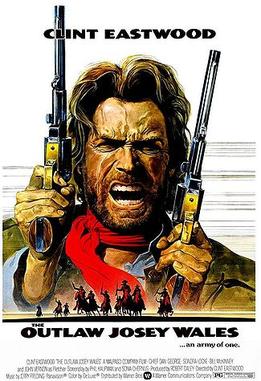- Also Known As:
- Unknown
- Year:
- 1970
- Country:
- Predominant Genre:
- Western
- Director:
- Outstanding Performances:
- Premiss:
- Jack Crabb, looking back from extreme old age, tells of his life being raised by Indians and fighting with General Custer.
- Themes:
- Alienation | Christianity |
Coming-of-age | Courage | Destiny | Emotional repression | Empathy | Family | Grieving | Humanity | Identity | Justice | Loneliness | Loyalty | Materialism | Narcissism | Personal | Personal change | Political | Sexual Repression | Solipsism | Stereotyping | White culture | White guilt | White supremacy - Similar to:


- Review Format:
- DVD
Caucasians v. Human Beings
Superb satire on the emotional repressions, sexual hypocrisies, genocidal tendencies & lack of morality of Caucasians - endlessly-worried about what others think about them.
Tirelessly-demythologizing the Hollywood Western by carefully-revealing what lies behind the myths: Whites generating income by drastically-reducing the life-expectancy of members of other cultures.
Native-Americans know where the center of the Earth is because they are grounded as a People. The humor here is at the expense of Whites, who are shown more concerned with their individual appearance than with their individual identity. Richard MULLIGAN, as Custer, brilliantly-represents this White malaise produced through Whites possessing a disrespectful culture that can only express itself in degeneracy and desecration.
Here, the White world is portrayed as the source of chaos; explaining the widespread White mental illness on show here. To be accepted as White, one is required to become as mad as they; to become human, one must battle Whites. This White inability to see people as they really are is reflected in a recurring motif of many of the White characters not recognizing each other after years have passed since seeing one another. It is almost as if Whites really do all look alike - even to each other. A dearth of individuation caused by the combination of a lack of a substantive culture and an unwillingness to see beyond the ends of their noses.
Inevitably, then, since this movie perfectly-portrays the White penchant for killing defenseless women & children in total wars of annihilation, it then becomes a historical analogue for the White imperialism of recent decades.
Faye DUNAWAY is excellent as the sex-starved wife of a coitus-fearing Christian preacher who calls her adulterous lover ‘filthy’ & ‘dirty’, calls out for help when he is lying between her legs, yet cannot wait for him to come inside her. Chief Dan GEORGE is superb as the visionary Indian who sees the writing on the wall for the continued existence of the Red man and is amusingly-resigned to their fate. Richard MULLIGAN is staggeringly-funny in an over-the-top performance as the chronically-neurotic General Custer; allowing us to see all the more clearly the Heart of Darkness within. Like Colonel Kurtz in Apocalypse Now, his only dream is the dream of all death-worshipers: Experiencing death through murdering others in the hope they will never have to experience it first hand; thereby overcoming their fear of death through the figurative pulling-off of flies wings. This is never a satisfyingly-authentic experience for anyone, however, precisely because it is second-hand; explaining Custer’s absurdly-suicidal battle tactics at the Little Big Horn.
While Westerns like this brought about the end of the Hollywood Western as a commercial movie genre in the West, itself, by trying to show the real West that was constantly elided in the interests of sustaining the myth of the White Man’s Burden, the form collapsed fighting to gain some artistic integrity after decades of White supremacist propaganda about which phenotype was the real hero of the The Wild West.




No comments:
Post a Comment